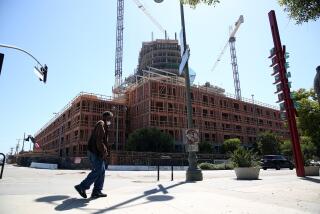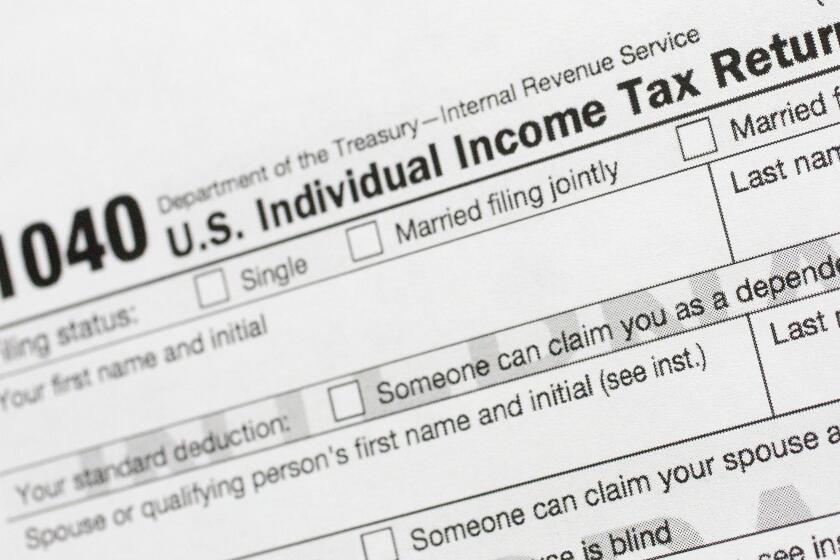Housing chief says little to fear from ‘shadow inventory’
The Obama administration has little fear of “shadow inventory,” or eminent domain.
Shadow inventory is the spooky name the real estate industry gives to a secret supply of homes on bank books or headed into foreclosure.
In a meeting with Los Angeles Times editors and reporters Tuesday, Shaun Donovan, secretary of Housing and Urban Development, said the volume of distressed and lender-owned homes was down at Fannie Mae, Freddie Mac, the Federal Housing Administration (which is part of HUD) and in bank portfolios. With an improving market, the worst appears to be over, he added.
“It’s hard to see where these properties are hiding,” Donovan said.
For years, housing experts have worried that a “shadow” supply of homes heading into foreclosure hangs over the market. Although that supply does exist, it appears to be shrinking quickly, recent reports have shown. CoreLogic said in June that shadow inventory stood at 1.5 million units as of April, representing a supply of only four months. That was a 15% decline from the same month a year earlier.
Listed supply -- the kind of properties that show up in real estate agent databases, Redfin and Zillow -- has sunk so low that it is comparable to the height of the last housing bubble. The lack of decent homes on the market, and a buying frenzy created by record-low interest rates and a better economy have helped lift prices this year.
“We are now seeing a full recovery, or a fuller recovery,” Donovan said.
The main exception appears to be due to backlogs in judicial foreclosure states such as Florida, caused by court processes. Contrast that with nonjudicial states, where a court order is not needed to take back a home, such as California, Arizona and Nevada states. In the West, the recovery has come faster.
Donovan also weighed in on a controversial plan to seize and restructure troubled mortgages in San Bernardino County using eminent domain. That plan has drawn big Wall Street players to the halls of local government to protest the matter on two occasions already this summer.
The cities of Ontario and Fontana, in partnership with the county, are exploring using private funds to acquire mortgages that are “underwater,” in which the homes wouldn’t sell for enough money to pay off the loans. Under the Homeownership Protection Program, the loans acquired by government authority would be restructured, lowering the amount owed, with the intent of helping the owner keep the home.
Donovan said on Wednesday that even if the plan went through in the relatively small number of markets where it has been threatened, he thought there could be little effect for another couple of years.
“I’m frankly surprised at all the attention it’s gotten,” he said.
President Obama is ramping up efforts this week to promote legislation aimed at keeping struggling Americans in their homes. In particular, he has called on Congress to pass a package of bills offering more opportunities for homeowners to save money by refinancing mortgages at lower interest rates.
Facing an uphill battle to get the backing of Congress, the administration dispatched Donovan on a multi-state trip to promote the legislation. After his meeting with The Times, Donovan met with Los Angeles Mayor Antonio Villaraigosa at City Hall, as well as with Sen. Dianne Feinstein (D-Calif)., who sponsored one of three refinance bills backed by the president. The three politicians met with housing advocates at a City Hall roundtable.
ALSO:
Sales of existing homes improve and prices rise
Home construction slides but building permits hit 4-year high
Obama touts bills offering refinancing to struggling homeowners
More to Read
Inside the business of entertainment
The Wide Shot brings you news, analysis and insights on everything from streaming wars to production — and what it all means for the future.
You may occasionally receive promotional content from the Los Angeles Times.









